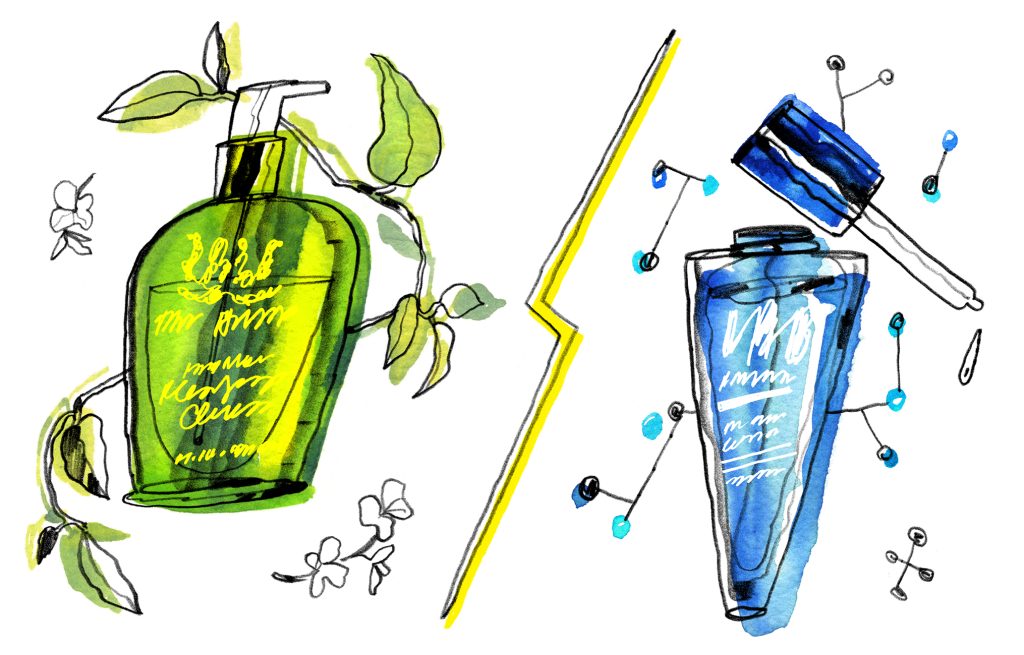In the world of beauty and personal care, skincare products are essential for maintaining healthy and glowing skin. But when it comes to classifying these products, a common question arises:
Are skincare products considered cosmetics?
In this article, we’ll dive into the definitions, differences, and the fine line between skincare and cosmetics. Understanding these distinctions can help you make more informed choices about the products you use daily.
Understanding Skincare Products vs. Cosmetics
Before delving deeper into whether skincare products qualify as cosmetics, let’s first explore the definitions of both terms.
What Are Skincare Products?
Skincare products refer to a range of items designed to cleanse, moisturize, protect, and treat the skin. The primary goal of skincare products is to maintain or improve the health and appearance of your skin. These products often contain ingredients that hydrate, repair, and target specific skin concerns like acne, wrinkles, or dryness.
Common skincare products include:
- Cleansers
- Moisturizers
- Serums
- Toners
- Exfoliators
- Face masks
What Are Cosmetics?
Cosmetics, on the other hand, are primarily intended to enhance or alter the appearance of a person. The U.S. Food and Drug Administration (FDA) defines cosmetics as products applied to the body to cleanse, beautify, promote attractiveness, or alter the appearance. This includes products like makeup, hair care, and fragrances.
Common cosmetic products include:
- Foundations
- Lipsticks
- Eyeshadows
- Mascara
- Nail polish
Cosmetics often do not focus on improving the skin’s health or repairing underlying conditions but are more about enhancing or altering external beauty.

The Overlap: Are Skincare Products Cosmetics?
Now that we have a basic understanding of both skincare and cosmetic products, it’s time to look at whether skincare products can be classified as cosmetics. The answer depends on how these products are intended to be used and their function.
1. Function and Purpose
The primary distinction between skincare and cosmetics lies in their purpose:
- Skincare is used to treat or maintain the skin’s health and appearance over time.
- Cosmetics are used to enhance appearance temporarily, such as by covering blemishes, changing facial features, or adding color.
While there are some products that blur the lines—such as tinted moisturizers or BB creams, which offer both skincare and cosmetic benefits—the primary difference remains in the intent. If the product focuses on enhancing beauty without addressing skin health, it’s more likely categorized as a cosmetic.
2. Product Claims
Skincare products often come with claims related to long-term benefits, like reducing wrinkles, improving hydration, or providing sun protection. These products are intended for treatment or prevention and are formulated with active ingredients like retinoids, peptides, or antioxidants.
Cosmetic products, however, are more about creating an immediate effect such as a full coverage foundation that hides imperfections or a lipstick that enhances lip color.
3. Regulation
In terms of regulation, the FDA treats cosmetics and skincare products differently. According to the FDA:
- Cosmetics are generally regulated as products that affect the appearance of the skin or body but are not intended to alter its function or structure.
- Skincare products that make claims about treating specific skin conditions (such as acne or eczema) may fall under the category of a drug. For example, sunscreen is regulated both as a cosmetic (for its appearance-enhancing properties) and as a drug (for its sun protection benefits).
Thus, some skincare products might have more stringent regulations due to their health-related claims, while cosmetics are usually regulated under less strict standards.
Products That Blur the Lines
In today’s beauty industry, many products blur the lines between skincare and cosmetics. Some examples include:
BB Creams and CC Creams
BB (Beauty Balm) and CC (Color Correcting) creams combine skincare ingredients like moisturizers and sunscreens with cosmetic elements like foundation. These hybrid products aim to provide a natural finish while offering skincare benefits like hydration and protection.
Tinted Moisturizers
Similar to BB and CC creams, tinted moisturizers provide hydration while adding a bit of color to even out skin tone. While primarily considered skincare, they can have cosmetic benefits too.
Foundation with Skincare Benefits
Some foundations include ingredients like hyaluronic acid or peptides, which provide skincare benefits while still serving as a cosmetic product to improve skin’s appearance.
Conclusion: Skincare vs. Cosmetics
So, are skincare products cosmetics? The simple answer is that they are not the same, but there is often overlap. Skincare products are primarily intended to treat and maintain skin health, while cosmetics are designed to enhance or alter one’s appearance temporarily. However, many products blur the lines, offering both skincare benefits and cosmetic results. Understanding the difference can help you choose the right products based on your needs and desired outcomes.

Key Takeaways:
- Skincare products focus on the health of your skin and offer long-term benefits.
- Cosmetics are intended to enhance or alter appearance temporarily.
- Some products, like BB creams or tinted moisturizers, combine elements of both skincare and cosmetics.
By understanding these distinctions, you can make better-informed decisions when purchasing products for your beauty routine. Whether you’re seeking healthy skin or just looking to enhance your look, there’s a perfect product for every need.
Looking for the best skincare and cosmetic products? Explore our Medical Expo that will showcase Dermo-Cosmetic products from all over the world.

